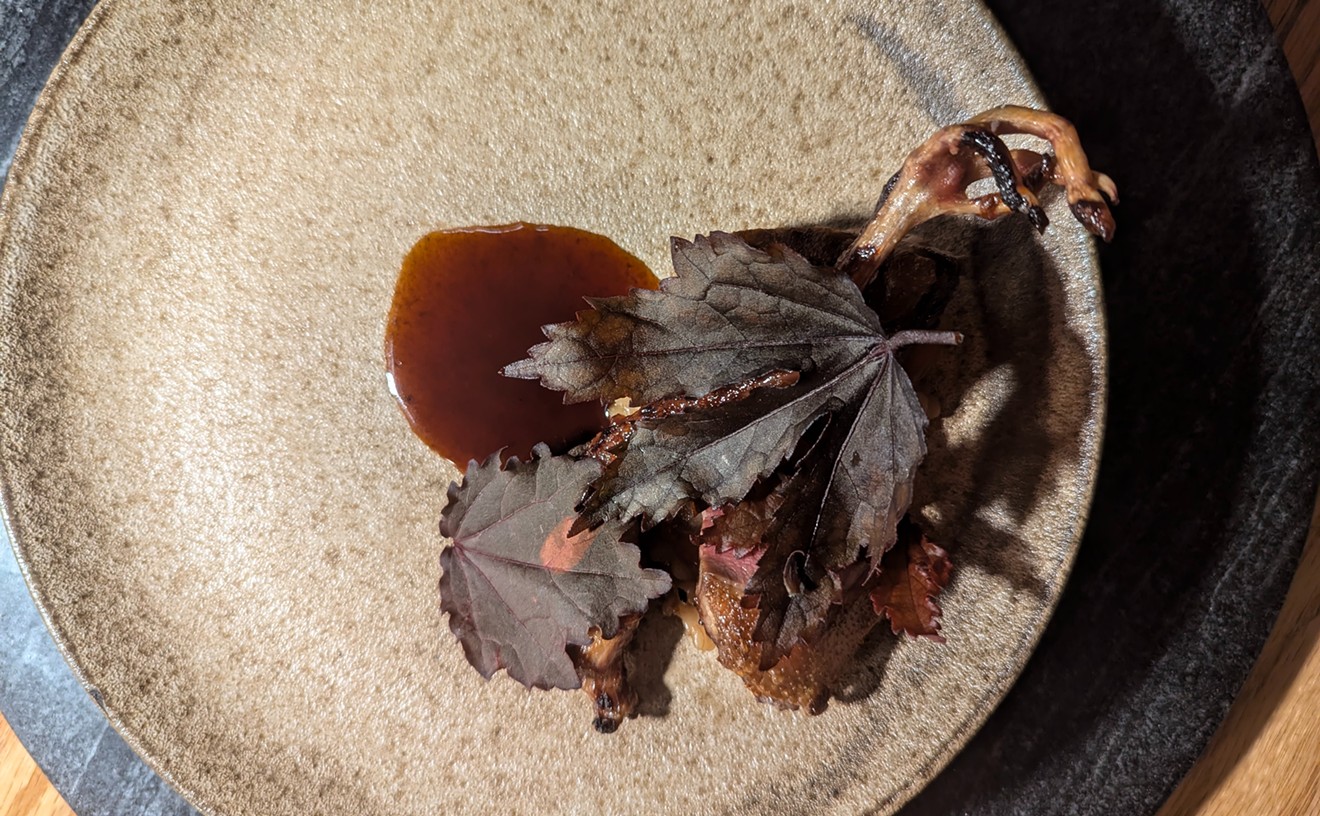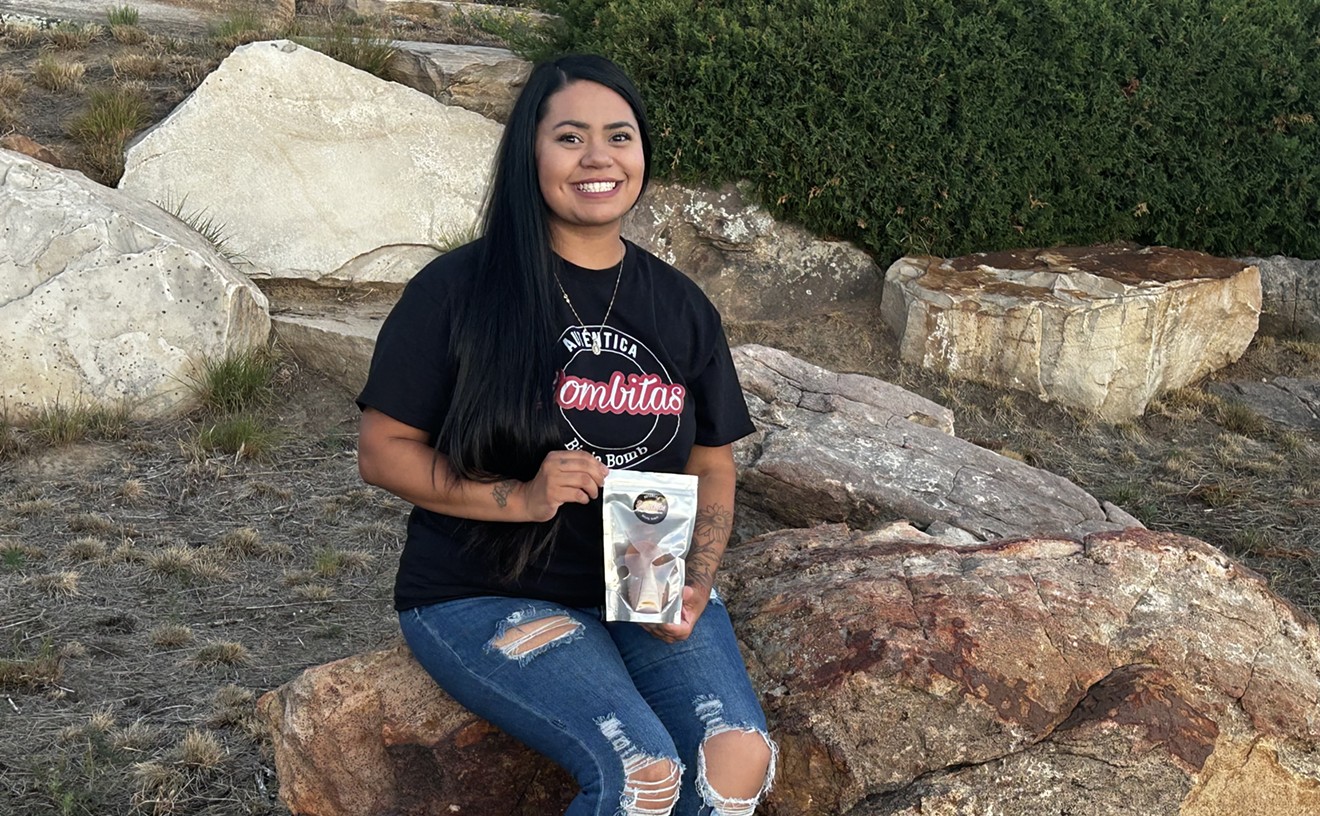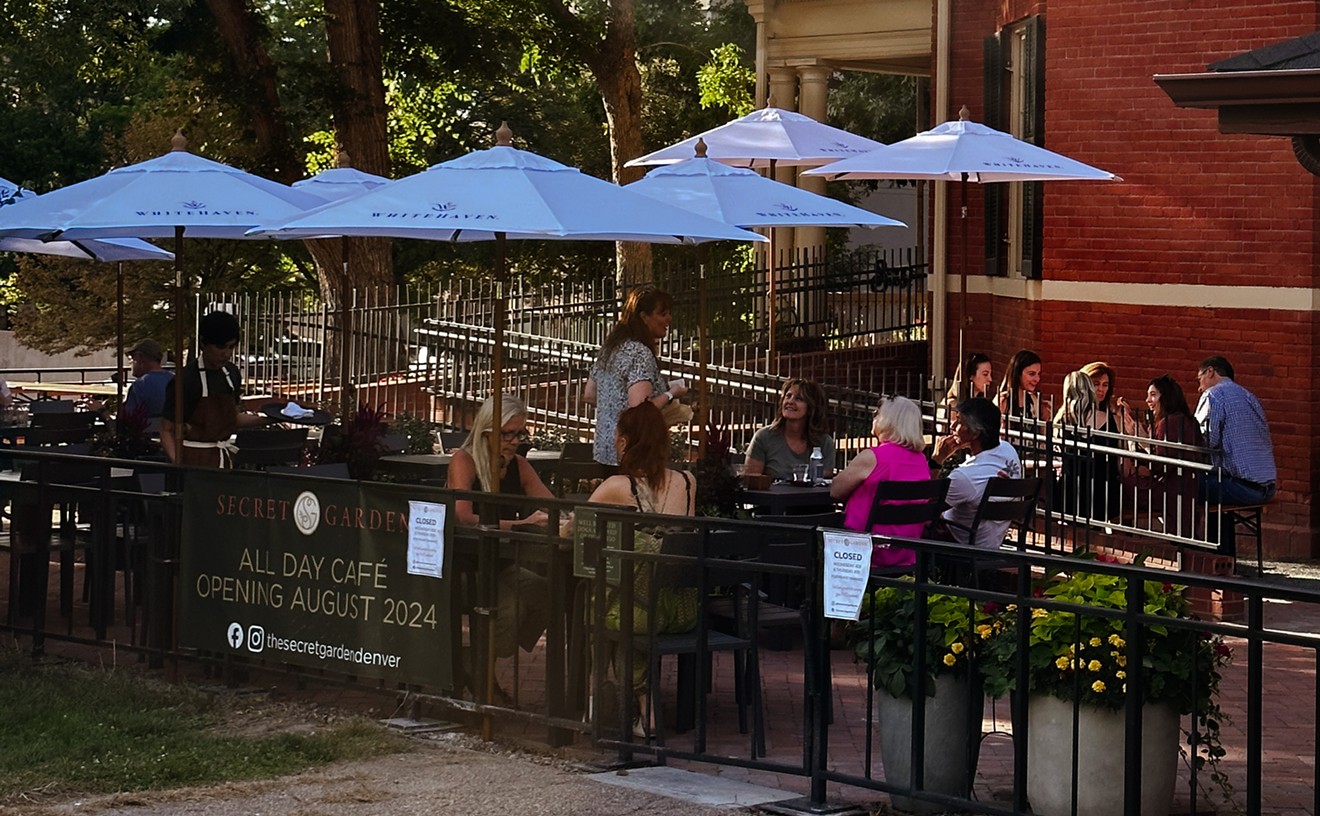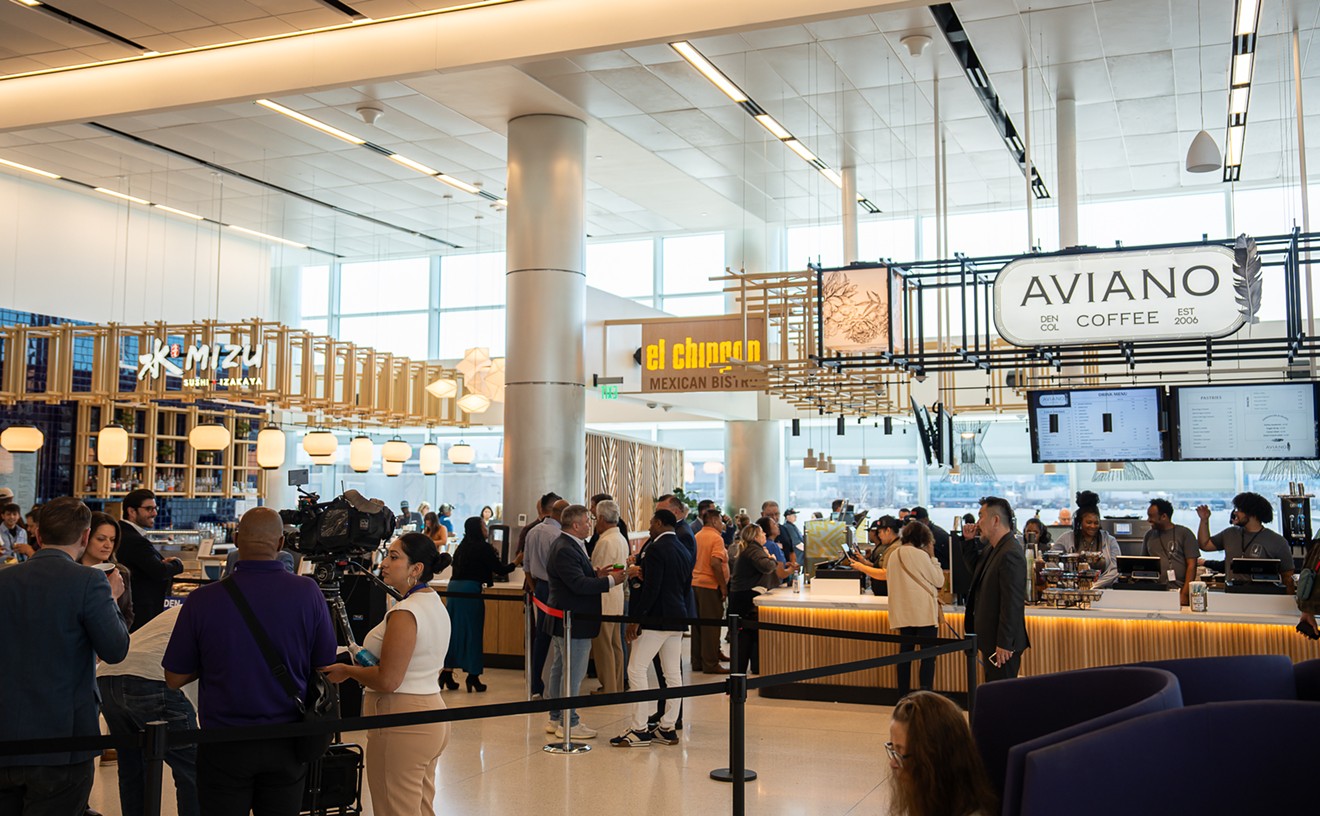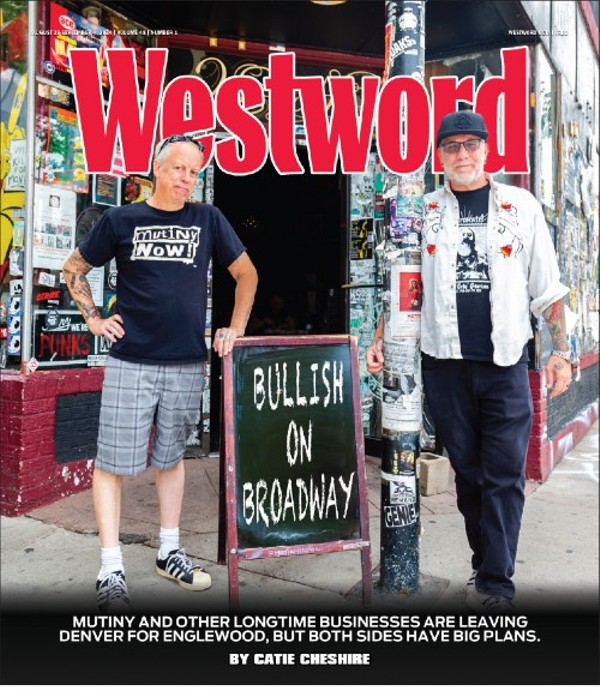Laurent Mechin
Jill’s Restaurant/St. Julien Hotel
900 Walnu
t Street, Boulder
720-406-7399
Laurent Mechin moved to Boulder six years ago to take a job as executive chef and culinary director at Jill’s Restaurant, which also serves as the kitchen for the St Julien Hotel. Mechin’s French upbringing and training are evident on the restaurant’s menu, which is dotted with sauces, reductions, cooking techniques and seasonal ingredients typical of the cuisine of his native France, even if they’ve been translated into a more international menu with modern American flair. That American accent can partly be explained by the need to appeal to the broader audience that a hotel restaurant attracts, and partly attributed to Mechin’s 25 years in the United States. For much of that time, he was working in California kitchens, where a new style of cooking was being developed that featured the freshest and most local ingredients typical of the state’s Mediterranean climate, combined with European methods that paired particularly well with the emerging wine scene.
But despite the similarities between California cuisine and wine-country cooking in France, the young chef from the rural hill country of the Jura region still had to deal with a great deal of culture shock in this country. Unlike in his birthplace, California chefs were experimenting with international ingredients and mixing Asian flavors with locally grown produce. Mechin was much more accustomed to relying on what was grown, foraged, hunted or produced within a tight radius of the town of 800 residents where he grew up and the other small towns where he gained early restaurant experience.
Before he even had an inkling of the restaurant world, he was immersed in a food culture. His mother taught him how to make crème anglaise and île flottante when he was seven, and his father taught him his recipe for lamb stew when he was ten. “My dad was a gourmand,” Mechin recalls. “He was very picky; he would travel miles for the perfect salami or cheese.” His father also fished and cooked: Mechin remembers catching pike that were almost as long as he was tall.
But it was a postcard from his cousin Bernard that stirred up a desire for a restaurant career. His cousin was an accomplished chef who had worked in resort hotels all over the world; when Mechin was eight, he received a postcard from the Hotel Frontenac in Quebec City, Canada, where Bernard was posted at the time. “I wanted to be like my cousin and travel to all these great places,” he explains. “It was petty boring growing up in that remote area, but the bounty was incredible.”
Setting his sights on a kitchen, Mechin got a job at l’Auberge du Moulin de la Chapelle — the restaurant his cousin opened upon returning to France — before his thirteenth birthday. The French school system had a formal apprenticeship program, so Mechin applied and received an offer to apprentice at a restaurant with three Michelin stars, but he turned it down. “It was too fancy for me,” he explains. “But it is maybe the biggest regret of my life.”
Instead, he went to l’Auberge de Chavannes, a tiny eight-table restaurant run by chef Pierre Charpentier, one of Mechin’s strongest influences and mentors. Apprenticeships were typically based on two-year contracts, but Mechin stayed for three, making just 20 percent of minimum wage but learning the intricacies of a professional kitchen that would earn its first Michelin star the second year he was there.
“Thirty covers was a big night,” he remembers. “On slower nights, we would harvest herbs from the garden for each dish.” That meant actually running out to the garden and picking enough herbs to finish one plating. Mechin shared responsibilities — cooking, cleaning and gardening — with two other apprentices, and when the restaurant was awarded its Michelin star, Charpentier took the entire staff — six people in all — to celebrate with lunch at the legendary Bocuse restaurant.
After completing his apprenticeship and finishing school, Mechin entered the French army (service was mandatory at the time). Initially, he stayed out of the kitchen; cooking was an art and a passion, and he didn’t want to prepare military meals. “But they found me and needed me in the kitchen,” he recalls. “I went from eight tables to 600 people.”
The experience didn’t ruin professional cooking for him, though, and once out of the army he worked in as many established kitchens as he could — from the 100-year-old Hotel de Dieppe in Rouen to the kitchen of prominent chef Ettienne Krebs in Switzerland. He studied pastries at the LeNotre School and worked in England for a year to improve his English — all in anticipation of his plan to move to the United States, where his brother had opened a bakery.
“I came over 25 years ago on Thanksgiving,” he notes. “I didn’t even know what it was — but now it’s my favorite holiday.” Mechin arrived on the East Coast and hitchhiked all the way to San Juan Capistrano, California, where his brother’s bakery was located. His first kitchen jobs in California were not easy. “There was a learning curve from French kitchens,” he explains. “I discovered a lot of ingredients I’d never heard of — radicchio, abalone....
“I was scandalized the first time I saw a cook peeling potatoes and half the potato ended up in the trash,” he adds. “I’ve learned a lot of good stuff, but I’ve un-learned a lot of stuff too.”
Mechin built his career even as the West Coast culinary scene developed. “Twenty years ago in California, there was no good bread or cheeses,” he says. “Everyone is more demanding and knows a lot more now. Now it’s not so tough to focus on small producers and local products.”
Mechin eventually joined the Four Seasons hotel group, initially working in Newport Beach. The job subsequently took him to hotel restaurants in Costa Rica and Jackson Hole, Wyoming, before the chef decided that he wanted to move closer to family members in Colorado. He and his family now live in Broomfield, where there aren’t many great places to dine out, he admits, but a quiet life is fine for this husband and father of two teenagers.
At the St Julien, Mechin breaks up the daily routine of running a hotel kitchen by introducing new programs for guests, like packages with Avery Brewing (one of his favorites) and other beer dinners featuring local breweries. The hotel also offers a Bon Vivant package for a limited number of guests: Mechin leads a small group (sometimes only two or four people) to the nearby Boulder Farmers’ Market, where they get to choose from the fresh produce available. Back at the hotel, Mechin prepares a lunch based on the guests’ choices. “It’s the highlight of my week,” he says, smiling.
He also enjoys planning the hotel’s annual Father’s Day package, with a Friday-night beer dinner and a Saturday meal based on outdoor grilling.
When he’s not cooking or overseeing the kitchen, Mechin keeps his fingers nimble by rebuilding motorcycles. “It’s my sanity hobby,” he jokes. “I have five bikes in the garage right now — mostly ’80s Japanese.” He fell in love with motorbikes at an early age, when he rode a moped ten miles each way to and from his kitchen apprenticeship. But his love of two-wheelers doesn’t extend to bicycles. “The Tour de France was just torture for us as kids,” he recollects. “There were only two TV stations and in the summer it was hours of just pedaling.”
His kids share his love of cooking. His nineteen-year-old developed a love of luxury and good food when the family was living at hotels where Mechin was opening restaurants. And will his son pursue a cooking career? “I hope he doesn’t,” Mechin says, pointing out that it’s not an easy way to earn a living. “He’s at New York University right now.”
Mechin marvels at how much has changed in the food world since he was a kid. In the village where he grew up, local farmers would bring their daily milk to one fromagerie, where most of it would be turned into cheese. Comté was the regional specialty, and it would take 400 quarts to make a batch. “It was a means of preserving milk more than anything,” he explains. “Now I can buy the same cheese from that region at Costco.”
But along with the globalization of food products, he also recognizes the movement toward local production. Mechin says he’s amazed at the quality of cheeses and cured meats available from Boulder-area producers. It’s almost as if his culinary world has come full circle. Like Bernard, he’s traveled the world and opened restaurants in exotic places — and now he’s built a home that’s not back where he started, but has the makings of a great food culture.

Audio By Carbonatix
[
{
"name": "Air - MediumRectangle - Inline Content - Mobile Display Size",
"component": "12017618",
"insertPoint": "2",
"requiredCountToDisplay": "2",
"watchElement": ".fdn-content-body",
"astAdList": [
{
"adType": "rectangle",
"displayTargets": "mobile"
}
]
},{
"name": "Editor Picks",
"component": "17242653",
"insertPoint": "4",
"requiredCountToDisplay": "1",
"watchElement": ".fdn-content-body",
"astAdList": [
{
"adType": "rectangle",
"displayTargets": "desktop|tablet"
},{
"adType": "rectangle",
"displayTargets": "desktop|tablet|mobile"
}
]
},{
"name": "Inline Links",
"component": "18838239",
"insertPoint": "8th",
"startingPoint": 8,
"requiredCountToDisplay": "7",
"maxInsertions": 25
},{
"name": "Air - MediumRectangle - Combo - Inline Content",
"component": "17261320",
"insertPoint": "8th",
"startingPoint": 8,
"requiredCountToDisplay": "7",
"maxInsertions": 25,
"watchElement": ".fdn-content-body",
"astAdList": [
{
"adType": "rectangle",
"displayTargets": "desktop|tablet"
},{
"adType": "rectangle",
"displayTargets": "desktop|tablet|mobile"
}
]
},{
"name": "Inline Links",
"component": "18838239",
"insertPoint": "8th",
"startingPoint": 12,
"requiredCountToDisplay": "11",
"maxInsertions": 25
},{
"name": "Air - Leaderboard Tower - Combo - Inline Content",
"component": "17261321",
"insertPoint": "8th",
"startingPoint": 12,
"requiredCountToDisplay": "11",
"maxInsertions": 25,
"watchElement": ".fdn-content-body",
"astAdList": [
{
"adType": "leaderboardInlineContent",
"displayTargets": "desktop|tablet"
},{
"adType": "tower",
"displayTargets": "mobile"
}
]
}
]





